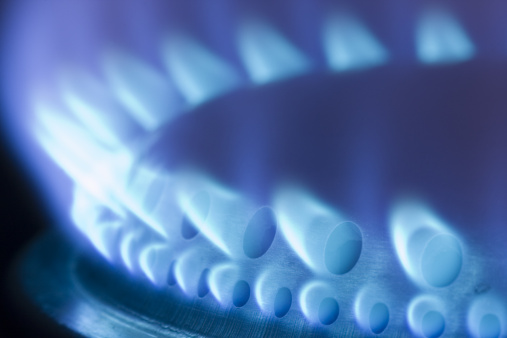Energy
Massive LNG Projects Get More Expensive (XOM, RDS-A, CVX, BHP, CHK, COP, BP, TRP, CQP)
Published:

Exxon Mobil Corp. (NYSE: XOM) has just raised the costs for its LNG project in Papua New Guinea (known as PNG LNG) by about 20% to $9.9 billion citing higher land costs, exchange rate impacts, and foul weather. Exxon owns 33.5% of the project and is the operator. Other participants include Australia’s Oil Search Ltd. and Santos Ltd.
Chevron Corp. (NYSE: CVX) is currently reviewing its even more massive Gorgon project in Western Australia, which has already been estimated to cost about $45 billion. Exxon and Royal Dutch Shell plc (NYSE: RDS-A) each hold a 25% stake in Gorgon, while Chevron’s stake is 47.3%.
BHP Billiton plc (NYSE: BHP), which acquired natural gas assets from Chesapeake Energy Corp. (NYSE: CHK) and outright purchased Petrohawk, has spent the best part of $20 billion to acquire major assets in the U.S. In August, the company wrote down $2.84 billion in the shale gas assets it bought from Chesapeake. The company is changing its U.S. focus to liquids-rich plays, but it may be too late for that to make much difference.
BHP is now considering a project to export U.S. natural gas as LNG to Asia, where prices are about four to six times higher than in the U.S. Such a project, if it gets approved, would cost the company billions more. Exxon, ConocoPhillips (NYSE: COP), BP plc (NYSE: BP), and TransCanada Corp. (NYSE: TRP) have estimated that an LNG plant on the west coast of Canada would cost $65 billion and take 10 years to build. That’s real money, even to big oil companies.
BHP is already participating in two major Australian LNG projects. The Scarborough project, in which it is a 50-50 partner with Exxon, and Woodside Petroleum’s Browse Basin project. Neither is yet under construction and, if they are built, are not likely to be in operation for years.
The only LNG export project currently under construction in the U.S. is the Sabine Pass project, where two LNG production facilities (called ‘trains’) are expected to commence operation in 2015. The project is owned and operated by Cheniere Energy Partners L.P. (NYSEMKT: CQP) and is a reversal of the existing Sabine Pass plant, which was built to receive imported LNG. The explosion in U.S. natural gas production has forced the change, and the project has received $5.6 billion in financing for the first two trains.
Natural gas may be cheap in the U.S., but by the end of the decade, if not before, prices will rise either due to lowered production or the first exports of LNG. The enormous growth in U.S. natural gas production could also be duplicated elsewhere in the world, where the fracking techniques used in the U.S. could be implemented. If that turns out to be possible, or some other method of extracting natural gas could be developed (say, by Japan, to take advantage of the huge frozen deposits of methane hydrates that lie in the oceans off the country’s coasts), these massive LNG projects could all be the next decade’s massive white elephants.
Paul Ausick
Choosing the right (or wrong) time to claim Social Security can dramatically change your retirement. So, before making one of the biggest decisions of your financial life, it’s a smart idea to get an extra set of eyes on your complete financial situation.
A financial advisor can help you decide the right Social Security option for you and your family. Finding a qualified financial advisor doesn’t have to be hard. SmartAsset’s free tool matches you with up to three financial advisors who serve your area, and you can interview your advisor matches at no cost to decide which one is right for you.
Click here to match with up to 3 financial pros who would be excited to help you optimize your Social Security outcomes.
Have questions about retirement or personal finance? Email us at [email protected]!
By emailing your questions to 24/7 Wall St., you agree to have them published anonymously on a673b.bigscoots-temp.com.
By submitting your story, you understand and agree that we may use your story, or versions of it, in all media and platforms, including via third parties.
Thank you for reading! Have some feedback for us?
Contact the 24/7 Wall St. editorial team.